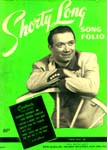|
Buddy Emmons, an innovative pedal steel guitarist who toured with the
Everly Brothers, Ray Price and Ernest Tubb and was one of the first to bring
the instrument into the jazz and rock genres, died July 21 at his home in Hermitage, Tenn. He was 78.
A family friend, Ernie Renn, issued a statement to the Nashville Musicians Association confirming
the death. He said the cause was a heart attack.
Mr. Emmons — commonly known in Nashville as “the Big E” — was known for fast and flashy
string work. Dazzling instrumentals such as “Raising the Dickens” (1955) (credited to the
Country Boys) and “Four Wheel Drive” (1957) influenced a generation of pickers.
However, it was the lyricism that he brought to slow songs that made him a popular accompanist.
He backed Faron Young on “Sweet Dreams” (1955), Ray Price on the bluesy “Night Life” (1963) and
folk singer Judy Collins on “Someday Soon” (1969).
He also graced recordings by Ray Charles, Bob Dylan, Arlo Guthrie, Linda Ronstadt, Rosemary Clooney and
the Henry Mancini Orchestra.
With the album “Steel Guitar Jazz” (1963), recorded in New York with pianist Bobby Scott and reed
player Jerome Richardson, Mr. Emmons interpreted standards by modern jazzmen such as Horace
Silver and Sonny Rollins.
“Country musicians loved jazz’s easy swing, but their concept of harmony often needed an
update,” NPR jazz critic Kevin Whitehead said in a 2012 review of the reissued album.
“When Buddy Emmons plays something like a hip modern jazz lick, he can lean on it
like a joke — as if it’s hard to take seriously. It’s an odd case of the ironic
outsider clashing with earnest New Yorkers. He was ready for them.”
Mr. Emmons continued his excursions into jazzier terrain in the 1970s and 1980s with
the band Redneck Jazz, a collaboration with Washington, D.C. guitarist Danny Gatton, and big-band recordings with vocalist Ray Pennington and the Swing Shift Band.
The pedal steel guitar had evolved from the Hawaiian lap steel guitar. With both
types, the guitarist plays the melody by sliding a bar over the strings while picking with his other hand.
However, the pedal steel is also equipped with knee levers and foot pedals that loosen
and tighten the strings to further alter the pitch. The devices create the crying steel sound
most associated with country music. Mr. Emmons not only mastered this teary quality,
but also used the technique to execute dazzling runs and complex jazz chord changes.
Throughout his career, Mr. Emmons created new designs for the instrument, including his
signature model, the Emmons Guitar in 1963, which he sold through his Emmons Guitar Company.
“Just about every week I’d come up with some kind of change,” he told the magazine Country
Music in 1978. “I’d take a metal neck off and replace it with wood to see if
that would help the tone. I had a neck without a fret board; that was to keep other people
from playing it. I had the only guitar in town with an ashtray on it.”
Emmons Guitar was his second company. Earlier, he had co-founded Sho-Bud Guitars with fellow steel
guitarist Shot Jackson in 1956.
Buddie Gene Emmons was born in Mishawaka, Ind., on Jan. 27, 1937. He was 11 when
his father, a machinist, bought him a lap steel guitar and purchased lessons for
him at the Hawaiian Conservatory of Music in South Bend. At 13, Mr. Emmons purchased his
first pedaled model.
He dropped out of high school to work as a full-time musician. Eventually, he settled in
Detroit, where he was hired by Grand Ole Opry star Little Jimmy Dickens for Dickens’s band the Country Boys.
Mr. Emmons later toured with Ernest Tubb’s Texas Troubadours, and Ray Price’s Cherokee Cowboys,
where his band mates included Willie Nelson.
After working as a session player in Los Angeles in the late 1960s and early 1970s, Mr. Emmons
returned to Nashville to focus on his own recording projects. He even did a turn as a singer
on a 1976 album tribute to western swing bandleader Bob Wills. He toured with the Everly Brothers
in the 1990s but was sidelined in the next decade with a repetitive motion injury and worked
only intermittently in recent years.
He struggled with amphetamine and alcohol addiction and credited his third wife, Peggy, who died
in 2007, with helping him stay sober. A complete list of survivors could not be confirmed.
“The thing that turns me on the most is when I’m around great musicians,” Mr. Emmons
told Steel Guitarist magazine in 1979. “If they know more about what’s happening than I do,
it makes me work harder and usually results in a much better performance on my part.
“After all, I’ve been listening to me play for 31 years and, quite frankly, I bore myself
to death with some of my old cliches. Anytime I can surprise myself, it’s like a breath of fresh air.”
(Note: Some news media sites
require user registration to read articles and/or to send you 'targeted' email
from advertisers.)
|



